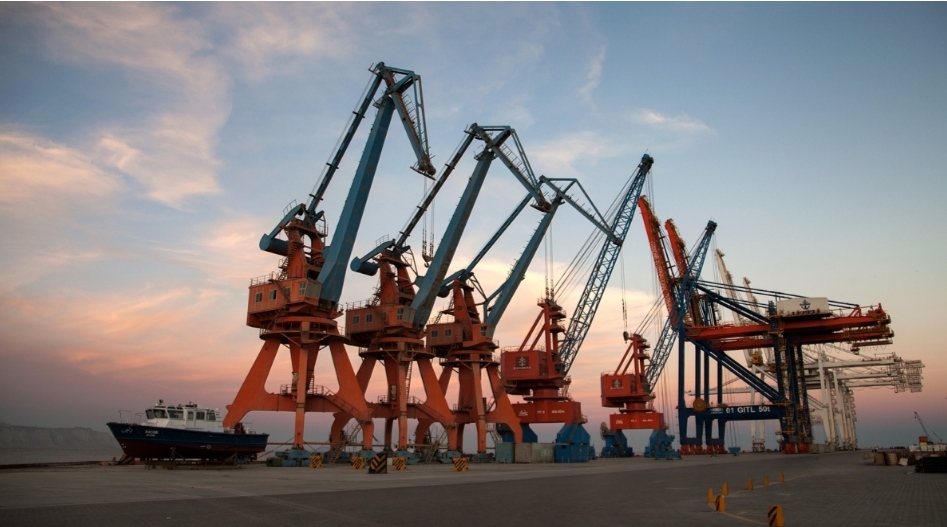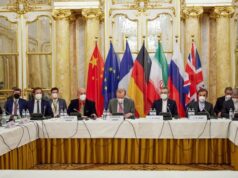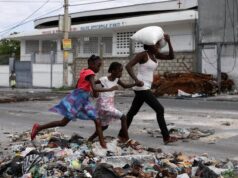China’s landmark BRI project in Baluchistan’s Gwadar Proving To Be A Bane Rather Than A Boon

A general view of Gwadar Port in southwestern Pakistan
As reported by The Guardian there was heavy protests by Baluch people against water and electricity shortages in Gwadar, where a flagship project of the China-Pakistan Economic Corridor (CPEC) is located. The local people blamed China for the problem and the protests were part of a growing backlash against the Belt and Road Initiative in Pakistan.
The protests are part of local people’s increasing discontent with China’s presence in Gwadar. The newspapers have reported that the deadly attack on a bus carrying Chinese engineers and workers that killed nine Chinese nationals in July was a sign of Pakistani’s growing resentment against the BRI.
In addition to blaming China for electricity and water shortages, report also mentioned detainment of five Chinese trawlers by Pakistan on suspicion of illegal fishing not far from Gwadar Port. The Chinese trawlers were illegally fishing in the nearby waters and this factor has naturally enraged the local fishermen and workers, leading to the huge protests.
Various other facts are now clearly showing that CPEC projects as part of BRI in Baluchistan are becoming a bane for the Baluch people instead of becoming a boon.
However the Chinese Media Reports are castigating The Guardian and other media outlets giving out the news about the protests against the China-proposed Belt and Road Initiative (BRI) in Gwadar. As per the Chinese, all such protest reports are untrue, and Such fake news are just the handiwork of some foreign media organizations. They are deliberately smearing the China-Pakistan cooperation.
Chinese are reporting that The Guardian report has been by refuted by Gwadar authorities who have said in a statement that Such reports are full of misleading, malicious and misrepresented information.
The purported statement, issued by the Chief of the Municipal Committee of Gwadar, said that shortages of water and electricity in Gwadar “are not the responsibility of the Chinese at all,” instead, they are due to historical reasons and still remain a problem for Gwadar.
On Sunday, another report — this time by ANI — said that the protests were against “illegal fishing by Chinese trawlers.” China Overseas Ports Holding Co (COPHC) Pakistan, the enterprise that operates the Gwadar Port, immediately refuted reports of protests against Chinese trawlers.
Tahir Murtaza, a low level Pakistani reporter who has been following the situation in Gwadar and is on the pay roll of the Chinese has stated that protests have occurred for a long time. The issues are about the lack of electricity and water, but China is not related. However, some media outlets deliberately linked the protests with fishing by Chinese trawlers.
Gwadar’s electricity supply is not connected with the Pakistani electricity grid and relies on electricity imported from Iran, which has also faced a supply shortage recently, Murtaza said. “Pakistan has talked with Iran about providing extra energy to meet local demand but local people are demanding an uninterrupted supply of electricity. The same is the case with water,” said Murtaza noting that “China is not the reason for the lack of electricity and water there.
A statement by the Municipal Committee of Gwadar noted that Chinese companies have managed to supply 100,000 to 200,000 gallons of water to the local community with their own water plant.
According to Tahir, it was Indian media and certain nationalist parties in Balochistan, such as the Baluch National Party, that have deliberately linked the local water and electricity shortages with the BRI Initiative.
“They are trying to instigate an anti-China sentiment in Gwadar by telling local people that all problems are caused by China. By doing this, they hope to push their political agenda,” Tahir said.
Tahir added that some of them have contacts with reporters who support nationalism, while providing news for some Indian media and the Guardian.
The Municipal Committee of Gwadar refuted the claims, saying that the people of Gwadar are grateful for the assistance provided by the Chinese government and companies and China’s projects have boosted employment for the local community and would improve the infrastructure in the city. However they cannot explain away the Police brutality by the Occupation Forces of Pakistan and the resultant backlash by the Baluchistan Liberation Front.
Pakistan is in bad shape as there were shortages of electricity for six hours a day even in Islamabad. Though with the energy projects under the CPEC coming into operation, electricity supply in the capital area has been relatively sufficient since 2017. However these power projects have increased the pollution level by around 50 times. This is the price which locals have to pay.
According to reports by bonded Pakistani media, Chinese companies have helped build hospitals, schools, breeding farms and other facilities in Gwadar, and provided a large number of local jobs. Amid the coronavirus pandemic, Chinese companies have donated medical supplies to Gwadar hospitals. This has been strongly refuted by local Baluch people.
The detained Chinese fishing trawlers we’re able to successfully leave the waters of Gwadar Port for the high seas of the Indian Ocean only after the intervention of Chinese Embassy.
The Gwadar Port, as the flagship project of the CPEC, has seen a huge transformation in recent years. Pakistan’s Prime Minister Imran Khan said during a visit to Gwadar Port on July 5 that Gwadar’s development has long been limited by the lack of electricity and water, but with the help from China, the port is making significant progresses. In July, PM Imran Khan visited Gwadar port along with Chinese ambassador Nong Rong and ambassadors from major Middle East countries.
Nong Rong, Chinese Ambassador to Pakistan said during his meeting with Pakistani officials recently that China attaches great importance to friendly cooperation with Balochistan, and that a number of projects under the CPEC, including the Gwadar project, have pushed forward local economic and social development.
He also said that China hoped Pakistan to enhance its safety mechanism and improve the public opinion environment, so as to defeat any plots to harm the CPEC’s construction and sever China-Pakistan relations.




